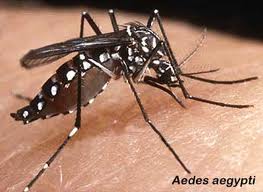The original article can be found in: BBC News By Helen Briggs
Football fans going to the World Cup in Brazil should be aware of the risk of dengue fever, a UK expert warns.
The tropical disease, spread by mosquito bites, could be a problem in three of the 12 host cities next summer, says Prof Simon Hay, of Oxford University.
There are no vaccines or drugs against dengue, but avoiding mosquito bites is the best precaution, he says.
Dengue can cause fever and in severe cases may need hospital treatment.
The infection is spread by a type of mosquito that is a particular problem in towns and cities.
Prof Hay’s team studied maps of the distribution of dengue in Brazil and its seasonal variation at sites where the tournament is being staged.
They found dengue risk will be close to its peak when matches are played in three of the host cities in the north-east of the country:
- Fortaleza
- Natal
- Salvador
“Dengue fever could be a significant problem in some of the tournament locations, and preventative measures are needed,” Prof Hay writes in the journal Nature.
“Fifa, the Brazilian authorities and the World Cup sponsors must use their influence and experience to communicate the risk.”
Fans will discover which matches will be played where when the draw for the group stages of the World Cup takes place on 6 December.
“I don’t want to dissuade anyone from going to the World Cup, nor to single out Brazil, which is one of the more than 100 countries battling dengue worldwide,” says Prof Hay.
“My aim is to inform unwary spectators about the risk and how they can protect themselves.”
There are no vaccines or drugs against dengue, but avoiding mosquito bites is the best precaution, he says.
Measures include:
- choosing accommodation with screened windows and doors, and air conditioning
- using insecticides indoors
- wearing clothing that covers the arms and legs, especially during early morning and late afternoon, when mosquitoes tend to bite
- applying insect repellent to clothing and exposed skin
Prof Hay says control measures are needed to reduce the number of mosquitoes around the northern stadiums and to interrupt the mosquito’s breeding cycle.
Commenting on the viewpoint article, Martin Hibberd, professor of emerging infectious diseases at the London School of Hygiene and Tropical Medicine, said it was a welcome reminder of the risks of dengue.
“Brazil is doing well to improve its health profile,” he added.
“The anti-dengue team will be out looking for the breeding site of the mosquitoes and trying to reduce the number.”














